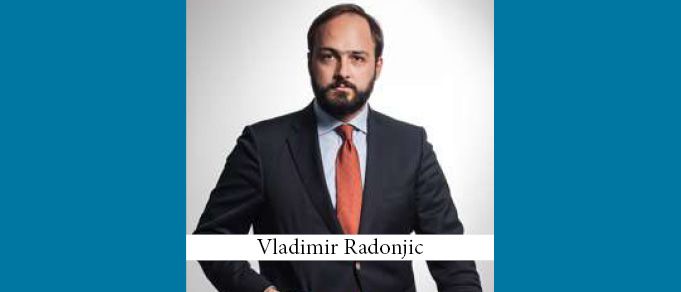Vladimir Radonjic, the Managing Partner of Radonjic Associates in Montenegro, reflects back on his Buzz interview in June 2017. "2018 has brought a lot more stability in terms of local politics, and the local economy is in better shape,” he says. "As you remember, in 2017 we joined NATO, and it seems the expectations people had that it would result in more stability have proven correct.”
Radonjic describes "a lot more interest from foreign investors than in previous years, and they are coming from new countries.” According to him, “in the last year we are seeing significantly more foreign investors from the West, including from the US.” Although no major deals involving American deals have closed recently, he says, "there is a lot more interest, and people are looking.” And they’re not all coming from the West: “Investors from Turkey are also very interested in Montenegro." He suggests that approximately 1000 of the companies in the Montenegro Company Register are from Turkey, and says it "reminds me of several years ago, when there was an influx of investors from Russia — now it’s from Turkey.”
According to Radonjic, foreign investors are particularly interested in the tourism, infrastructure, and energy sectors. The tourism sector, including hotels, is focused primarily on the coast, where a number of large international hotel chains are expressing interest. The Montenegrin government, he says, is also financing the development of a brand new ski resort in Mojkovac, which is currently under construction, and is financing the renovation of the country’s two existing ski resorts as well.
As for Infrastructure, Radonjic reports, by the end of 2020 the highway being built by China’s CRBC in cooperation with major Montenegrin infrastructure companies from Podgorica to Kolasin is expected to be completed. The project is fostering local economic development, he says. In addition, on the Infrastructure front, “from the strategic point of view one of the most important projects involves the upgrade of the only two operating airports in Montenegro, because with the increase in tourists the current status of the two airports is inadequate. The government is fully aware of the situation and the rumors in the country are that the government is preparing to proceed with a PPP, and that the tenders will be organized in the very near future,” and he reports that “the sense is there is a great deal of interest from foreign leaders in the field.”
On the Energy front, Radonjic says there are two stories of primary significance. "The first is that by the end of the year the first part of the energy connection between Italy and Montenegro should be completed and should be operational early in 2019.” This project — which Radonjic describes as “the biggest in Montenegro in the past two decades, and really important for the economy” — will make Montenegro the energy “hub” of the Balkan region, allowing excess energy to be sold to Western European markets. The investor is Italy’s Terna S.p.A., reflecting that country’s need for energy, leading Radonjic to smile: "In a way, by implementing the project, Montenegro will become the 21st region of Italy.”
On the second note, Radonjic reports that "the Montenegrin government has just initiated a tender of the long-term lease for land on the Montenegrin coast for construction of a photo-voltaic plant, and the interesting thing is that the project will not be based on a feed-in model, but instead on a completely new model that the government is considering for all such future projects, consisting of an obligation of the government to purchase the electricity produced at market price rather than the feed-in tariff price.” This is a new model, he says, "but even though the price is lower, there is still a lot of interest from foreign investors.”
Of course, not all is rosy for foreign investors in Montenegro, and Radonjic sighs when the subject of the country’s judiciary comes up, noting that a general lack of sophistication and familiarity with foreign law continues to make foreign-law provisions of important contracts problematic, at best, and downright dangerous, at worst. Especially "following this important increase of foreign investments into the country, they need to adapt to different models of projects.” He reports a number of initiatives and programs designed to address the problem, many led by foreign NGOs and other organizations. "But it will take a lot of time,” he says. "It can’t make results in the short run. it’s a complex problem, and I’m not so optimistic for change in the short term.” As a result, Radonjic says, firms are increasingly counseling their clients to pursue arbitration either within or outside the country, as appropriate. "That’s why I think arbitration is becoming more popular/more acceptable,” he says, “both in Montenegro and outside — for high value contracts we encourage clients to choose the well-established venues abroad."






























